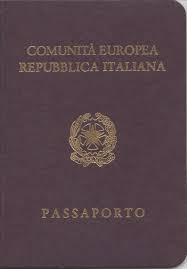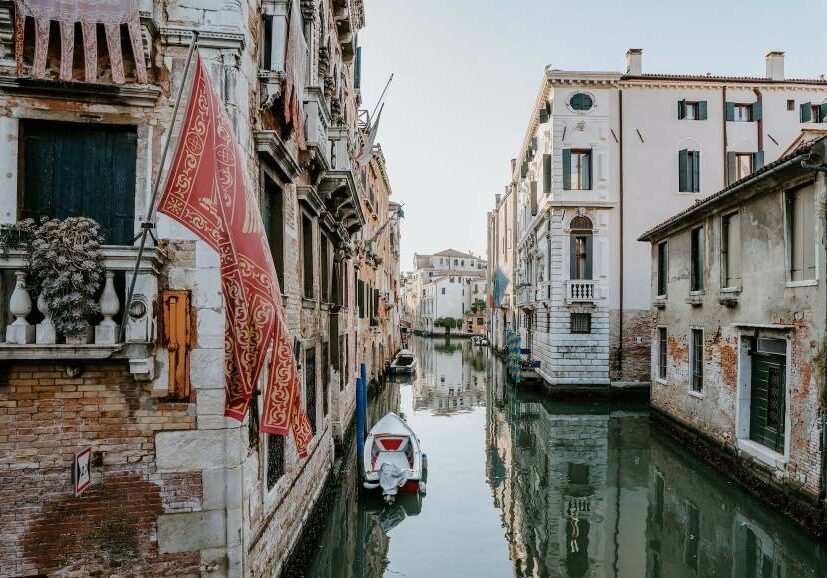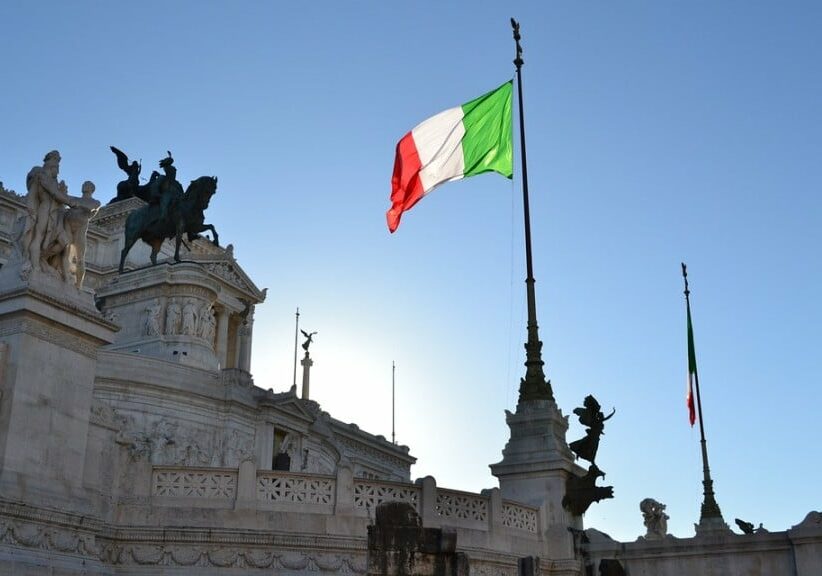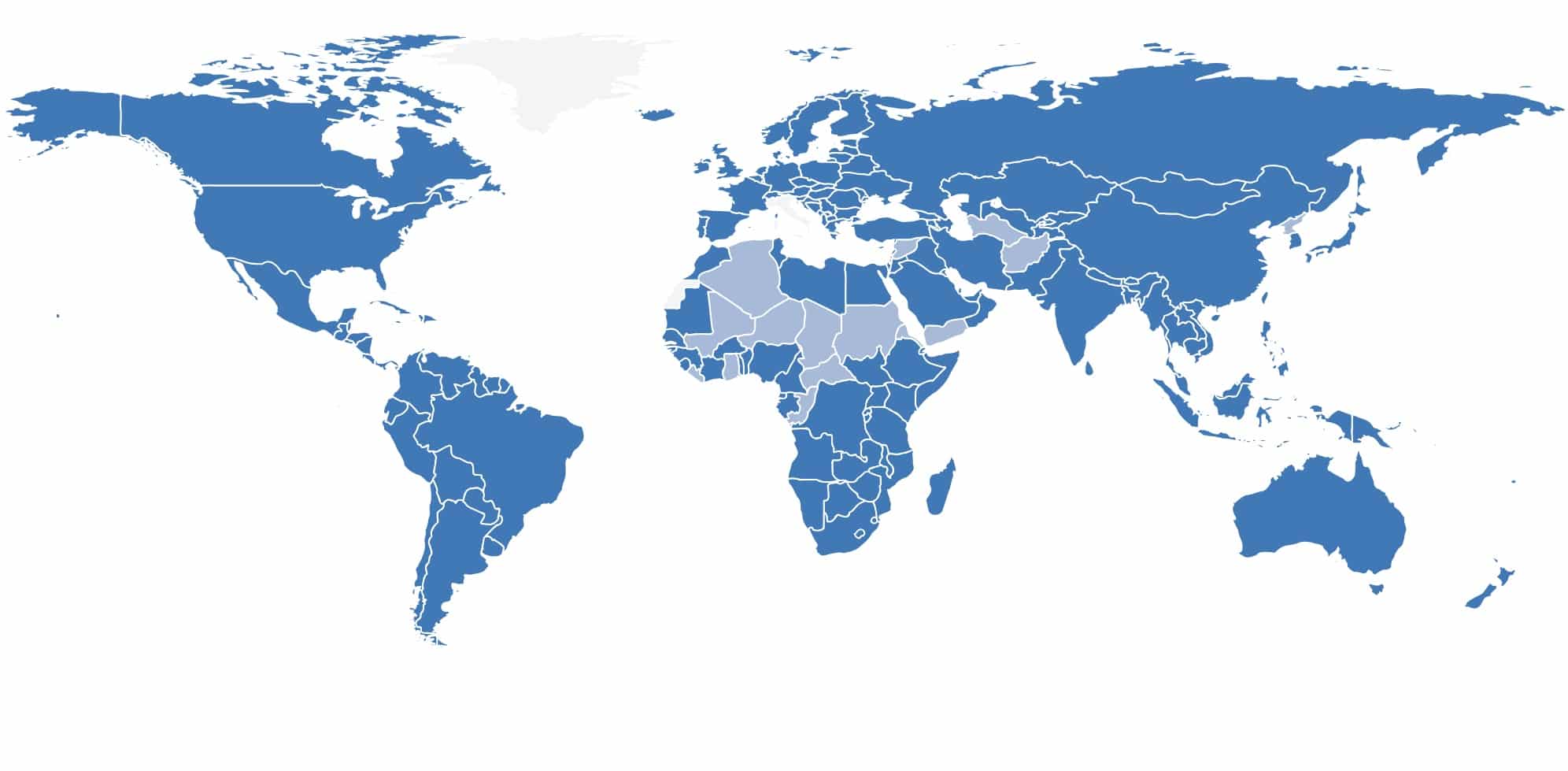An Italian passport is an official travel document issued to Italian citizens that confirms their identity and nationality. It allows holders to travel internationally with visa-free or visa-on-arrival access to 198 countries and territories. As EU citizens, Italian passport holders can also live, work, and study freely in all 27 EU member states, with access to shared healthcare, education, and social services..
The passport provides access to Italian embassies and consulates worldwide for assistance while abroad and serves as a link to Italy’s rich cultural identity, language, and traditions.
This guide will take you through the requirements and steps to obtain Italian citizenship and secure your Italian passport.
This is what we will cover:
- Who can apply for an Italian passport?
- The Strength of an Italian Passport
- Visa-Free and Visa Requirement Map
- Italian Passport benefits
- How to apply for an Italian Passport
- What are the required documents to apply for an Italian passport?
- Italian Passport Application Process
- Italian Passport Processing Time
- Italian Passport Cost
- Italian Passport Renewal
Who can apply for an Italian passport?
An Italian passport can be issued to any Italian citizen for international travel. This includes those born in Italy, those who acquired citizenship by descent (jure sanguinis), marriage, or naturalization. Individuals who renounced and later re-acquired Italian citizenship are also eligible to apply.
The Strength of an Italian Passport

- how easily you can travel with the passport
- how strong the country’s economy and investment climate are
- the overall quality of life in the country.
This gives a more complete picture of a passport’s value, especially for people interested in global travel, investing, or getting a second citizenship.
The Italian passport is considered one the most powerful passports, ranking 22nd on the index, with visa-free access to 129 countries and second on the investment index. These are some of the few aspects that add to the value of the passport.
Italian Passport Overview |
Visa-Free and Visa Requirement Map
Italian Passport benefits

An Italian passport is not just a travel document but also an invaluable gateway to numerous opportunities.
- Visa-Free Travel: Enjoy visa-free or visa-on-arrival access to 198 countries, including the U.S., Canada, UK, Japan, and most of Latin America and Asia.
- EU Freedom of Movement: As an EU citizen, you can live, work, and study in any of the 27 European Union countries, plus Iceland, Norway, Switzerland, and Liechtenstein.
- Dual Citizenship Allowed: Italy permits dual or multiple citizenship, so you don’t have to give up your current nationality. An Italian passport is among the strongest, ranking 22nd on the Global Citizen Solutions Passport Index.
- Consular Protection Abroad: Get help from Italian embassies and consulates anywhere in the world—and if Italy has no presence, other EU embassies can assist you.
- Access to Healthcare and Education: Residents of Italy or another EU country can access high-quality public healthcare and education systems.
- Family Reunification Rights: These make it easier to bring non-EU family members to live with you in Italy or elsewhere in the EU.
- Right to Vote and Participate in EU Politics: Vote in Italian elections and EU parliamentary elections, and participate in shaping EU policy.
- Cultural and Heritage Connection: Connect to your Italian roots, traditions, and identity, and pass citizenship on to future generations.
How to apply for an Italian Passport
When you become an Italian citizen, you also receive an EU passport, making you both an Italian and a European Union citizen. This allows you to live anywhere in Europe for as long as you like and experience its many cultures.
If you decide to move to another EU country, applying for residency is usually just a formality. Fortunately, Italy offers a few routes to citizenship, such as by birth, descent, naturalization, and marriage, making it possible for many people with ties to Italy to become citizens.
Citizenship by birth
Italian citizenship by birth means you automatically become an Italian citizen if at least one of your parents is Italian, no matter where you are born. This is based on the principle of “jure sanguinis,” or the right of blood. Being born in Italy does not automatically make you a citizen unless your parents are Italian or are unknown, stateless, or cannot pass on their citizenship.
Citizenship by descent
Italian citizenship by descent allows people with Italian descent to claim citizenship if they have close family ties to Italian nationals. According to the updated law, only those with a parent or grandparent who was an Italian citizen at birth can apply. Great-grandparents no longer qualify. To qualify, your ancestor must have:
- Born in Italy.
- Been alive and not a citizen of another country on 17 March 1861 (the date of Italian unification).
- Not become a citizen of another country before 1 July 1912.
You need to prove your family connection and that citizenship was passed down without interruption. Applications must be submitted through Italian consulates or embassies in your country.
Citizenship by marriage
Italian law allows citizenship by marriage for foreign spouses of Italian nationals. If you are married to an Italian citizen and live in Italy, you can apply for citizenship after two years of marriage. If you live outside Italy, you can apply after three years. Your local Italian Consulate can confirm the exact rules.
The wait is shorter if you and your Italian spouse have children under 18. You can apply for citizenship by marriage after one year of marriage if living in Italy, or after 18 months if living abroad. Once approved, you also become eligible for an Italian passport.
Citizenship by naturalization
Italian citizenship by naturalization is available to foreign nationals who have lived in Italy for a long time and have become part of the community. You must have lived in Italy for ten years as a legal resident to qualify. The process usually starts with living in Italy for five years with a long-term residence permit. After that, you can apply for permanent residency.
Once you’ve had five more years of permanent residence (for a total of ten consecutive years in Italy), you can apply for Italian citizenship by naturalization. To qualify, there are a few important conditions. You cannot have spent more than ten months outside Italy during the five years before applying, and you must show a minimum annual income of €8,264.
Visas like the Golden Visa, Italy Elective Residence Visa, and Italy Digital Nomad Visa are important first steps toward Italian citizenship. They allow foreign nationals to live in Italy long enough to qualify for permanent residency and apply for naturalization.
Visa Type | Initial Validity | Renewal | Path to Permanent Residency | Path to Citizenship by Naturalization |
Italy Golden Visa | 2 years | Renewable for 3 more years | After 5 years | After 10 years of legal residence |
Elective Residence Visa | 1 year | Renewable annually | After 5 years | After 10 years of legal residence |
Digital Nomad Visa | 1 year | Renewable while eligible | After 5 years | After 10 years of legal residence |
What are the required documents to apply for an Italian passport?
The following documents are required to apply for an Italian passport:
- A valid travel document or national ID card [e.g., driver’s license or Electronic Identity Card (eID card)]
- An Italian passport application form provided by the Questura (local police headquarters) or by the nearest consulate in your home country
- Certified copies of your birth certificate with a sworn Italian translation
- Certified copies of your marriage certificate with a sworn Italian translation (if applicable)
- Two passport-size photographs with a white background
- A Letter of Consent (if you are applying for minor children’s passports)
- The passport fee
- You’re expired Italian passport (for renewal)
Italian Passport Application Process

If you recently applied for AIRE via FAST IT, wait until the status shows “definito/completo” before making an appointment.
Dual citizens living in Italy can apply for a passport at their local Questura or through an Italian Embassy or Consulate abroad. Appointments are required for in-person identity verification.
With the introduction of electronic passports, Italian Consulates now require fingerprinting for passport applicants. To get a new biometric Italian passport, you must go in person to the Consulate General in San Francisco so they can take your fingerprints. Children under 12 years old do not need to give fingerprints.
Important notes:
- Minors under twelve are not required to submit fingerprints to be issued a passport.
- Minors under twelve are not required to attend an interview at an Italian Consulate, and their passport applications can be sent via post.
- Immigration law in Italy requires Italians applying for a passport for their children under 18 to obtain a formal Letter of Consent agreement from their spouse.
- A person with a disability, an expecting mother, who must be proven with a letter from your doctor or hospital, and people over 70 do not need to arrange an appointment with the Italian Consulate in their home country.
Italian Passport Processing Time
An Italian passport application’s processing time and issuance is between one to six weeks. An emergency passport can be received within one week. Passport renewals generally have a faster processing time. You can also expect speedier processing for applications submitted to a Questura in Italy.
Italian Passport Cost
The standard fee for an Italian passport is €116, including €42.50 for the passport and € 73.50 for the administration fee. €42.50 for the passport and €73.50 for the administration fee. The fast-track fee is €50. The cost of an Italian passport can vary depending on the country and the overseas Italian Consular Office.
Italian Passport Renewal
An Italian passport is valid for 10 years for adults, 5 years for minors aged 3 to 18, and 3 years for children under 3. To avoid travel disruptions and keep visa free access to over 129 countries, it is important to renew your passport before it expires.
Renewal is simple. Just apply at an Italian consulate or in Italy with your current passport, ID, and passport photos. Since processing times can vary, it is best to renew early. Keeping your passport up to date helps ensure smooth travel and residency abroad.
Can you have multiple passports in Italy?
Yes, Italian citizens can hold multiple passports, but with some rules:
• Italy allows you to have more than one citizenship and, by extension, multiple passports.
• You can have two valid Italian passports, but not use both at the same time.
• One passport will be stored safely at a police station (Questura) or consulate while the other is in use.
• The second passport is only issued for valid reasons (for example, frequent travel needs or travel restrictions affecting certain stamps/visas) and may have limitations.
How Can Global Citizen Solutions Help You?
Global Citizen Solutions is a boutique migration consultancy firm with years of experience delivering bespoke residence and citizenship by investment solutions for international families. With offices worldwide and an experienced, hands-on team, we have helped hundreds of clients worldwide acquire citizenship, residence visas, or homes while diversifying their portfolios with robust investments.
We guide you from start to finish, taking you beyond your citizenship or residency by investment application.

Frequently Asked Questions about Italian Passports
How can you get an Italian passport?
You can get an Italian passport by becoming an Italian citizen. This can happen through descent (if you have Italian ancestry), marriage to an Italian citizen, naturalization after living in Italy for a certain number of years, or through Italian parents. Once you’re a citizen, you can apply for a passport at an Italian consulate or in Italy.
How do you renew an Italian passport?
You can renew an expiring/expired Italian passport by applying for a new passport at the Italian Consulate in your home country or a Questura if you live in Italy. You must also present the following documents:
- Your expiring/expired passport
- Your national ID [e.g., driver’s license or Electronic Identity Card (eID card)]
- Passport photos taken within the last six months
How strong is an Italian passport?
The Italian passport is one of the strongest in the world, enhancing global mobility with visa-free or visa-on-arrival access to 198 countries. According to the Global Passport Index by Global Citizen Solutions, Italy ranks 22nd globally, making it a powerful travel and residency document.
Can you obtain an Italian passport by Investment?
Italy does not offer a direct citizenship-by-investment program. However, the Italy Golden Visa, officially known as the Investor Visa for Italy, allows non-EU citizens to obtain residency through significant financial investments. This residency can eventually lead to citizenship through naturalization.
Does Italy allow dual citizenship?
Yes, Italy allows dual citizenship. Individuals can hold Italian citizenship alongside another nationality, provided the other country also permits dual citizenship.
Can I live in the USA with an Italian passport?
Yes, you can live in the USA with an Italian passport, but you need the appropriate visa or residency permit. Italian citizens can enter the U.S. visa-free for short visits under the Visa Waiver Program, but to live and work there, you must apply for a visa like a work, student, or immigrant visa. Holding an Italian passport alone does not grant automatic residency.
Who is eligible for an Italian passport?
Anyone who is an Italian citizen is eligible for an Italian passport. This includes people who obtain citizenship by birth, descent from Italian nationals, marriage to an Italian citizen, or naturalization after meeting residency requirements. Applicants must also be registered with AIRE if living abroad.
Can I apply for an Italian passport online?
No, you cannot apply for an Italian passport entirely online. While you can schedule an appointment through the official Prenot@mi portal, you must attend the appointment in person at the consulate or embassy. This is necessary for biometric data collection, including fingerprints, which cannot be done remotely. Children under 12 are exempt from fingerprinting but still need to appear in person.
Is a passport a legal requirement in Italy?
A passport is not a legal requirement for Italian citizens traveling within the EU or Schengen Area, where a national ID card is enough. However, a valid passport is required for travel outside these areas. It also serves as proof of identity and citizenship when needed.



